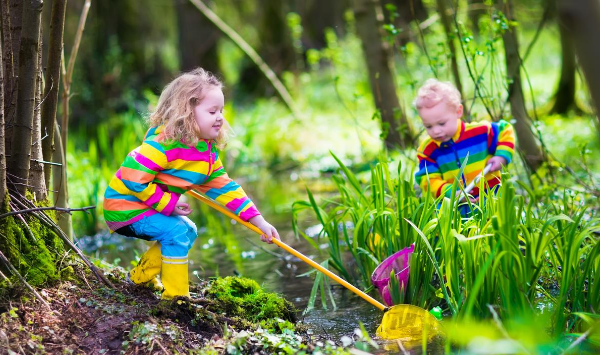
Children often ask many interesting questions.
How many stars are in the sky? Why is the sky blue? Why do people have two eyes when they see only one thing? How deep is the ocean?
Such thought-provoking questions show that kids today are constantly fascinated by the world around them. As parents, we must keep that thirst for knowledge and curiosity alive.
Below are other ideas for ways to raise lifelong learners.
9 Strategies For Raising Children To Be Lifelong Learners
1. Encourage Curiosity
Babies explore by putting things inside their mouth, crawling, and knocking things over.
As they grow, they ask questions and take things apart.
Also, they continue to hone their knowledge as they become passionate about a certain activity or idea.
No matter what your child’s age is, you must nurture their curiosity by letting them explore, read, ask questions, and test out theories.
2. Promote Creativity
How your child approaches art is one of their earliest ways of displaying creativity.
So let them draw a short giraffe or color the sky green.
This shows how they are using their imagination and that they are thinking outside of the box.
You can also give them open-ended toys like science kits, blocks, items for pretend play and art supplies to boost imagination and creativity.
3. Impart Resourcefulness
Let your child know that you do not always have the answers, but you can help them find ways to answer their queries.
For instance, if they are curious about a certain animal, go out and visit the nearest zoo, or if that isn’t ideal find a video showcasing the animal and its habits.
It is also very important that you help them connect with key individuals like teachers, family members and librarians.
If your child wants to become a doctor or a nurse someday, encourage them to ask questions during their next check-up.
4. Remind Them That Learning Happens Daily
Your child must know that learning does not only happen within the four corners of the classroom by showing them how they can learn every day.
Emphasize that as they grow up, they will learn new skills, such as taking care of a pet, tying their shoes, and buttoning their clothes.
Moreover, show them that even adults are learning each day.
Tell them some of the new things you have recently discovered, such as mastering a new hobby, using a new digital camera, and cooking a new recipe.
5. Stimulate Problem-Solving
Children will receive plenty of step-by-step directions so it is very important for you to give your child questions and opportunities that will challenge their mind.
For them to become a lifelong learner, let them decide which of the different strategies they will use to solve a certain problem.
Instead of giving them directions, you must give them choices.
For instance, let your child select what they would like to wear rather than laying out their clothes for them. Or choose 2 outfits for your child but they get to make the final decision as to which one they prefer to wear.
Problem solving opportunities are almost everywhere, even during play!
Blocks are a great toy to build some problem solving foundations! For example, not all structures a child builds will be sturdy. When a tower falls down encourage your child to try again!
6. Introduce New Experiences and Places
Take your child to new places and let them try new experiences. After all, experience is said to be the best teacher.
This will help them to relate what they have learned with the unknown.
If your child is only playing soccer for example, they will not know that different sports will have different rules.
So let them try other sports – they may even discover that they play basketball better than soccer.
New experiences can be as simple as trying new foods or learning about other cultures!
7. Expand Their Vocabulary
Your child can learn something new without being aware of the words or terminology.
So make sure that you share some new vocabulary terms as they explore new ideas and places.
When you and your child visit a museum for the first time, for instance, introduce words like “painting” and “sculpture,” and explain to them what each word means as you look through the exhibits.
Try using alternate words for words that they already know and use. For example, instead of saying something is big try using other words such as large, huge, enormous, etc.
8. Feed Their Passion
If your child is crazy about seashells or rocks, encourage them to collect and learn about them.
You can buy books or download videos related to this or enroll them in summer camp.
Most importantly, take them to a place where they can learn more about their interest.
9. Make Learning Personal
Education must be meaningful for it to stick and become memorable.
Today, there are plenty of online learning resources that can help you personalize education for your child.
You can actually get customized videos and courses that are meant for specific levels of learning.
This type of learning is great for older children who are interested in learning something specific that may not be taught in school.
But remember, hands on learning is always the best for young learners!
Final Thoughts
One of the greatest things you can do for your child is to encourage a love of learning.
Although your level of involvement will change depending on the age of your child, ensuring that their needs are met, enriching their environment, applauding their success, and supporting them through challenging periods remain essential to raising a lifelong learner.
Author Bio: Bushra Manna is one of the founders and Principal of Leaps and Bounds Education Centre – Motorcity, Dubai. Follow them on Twitter!




